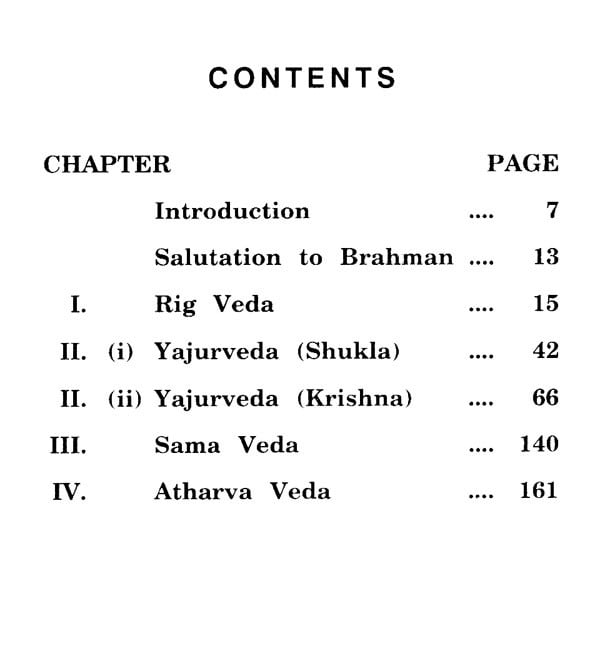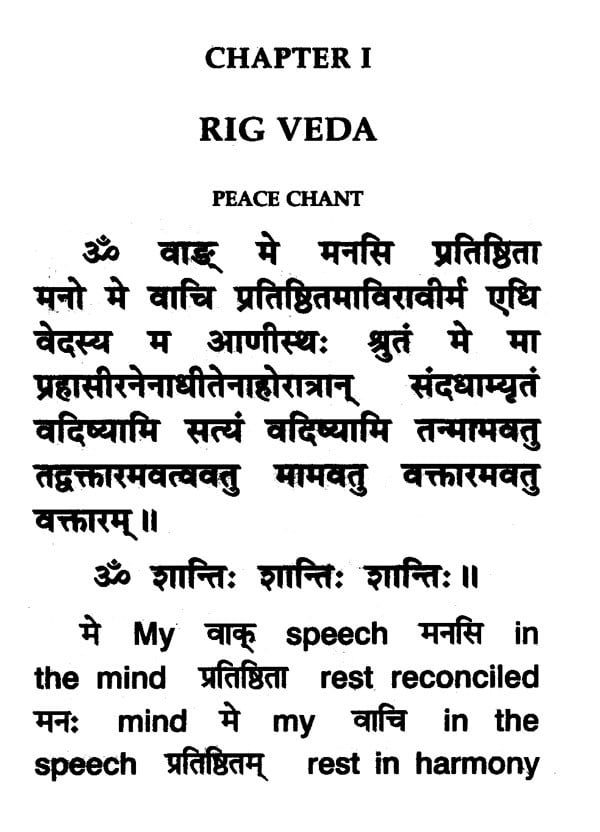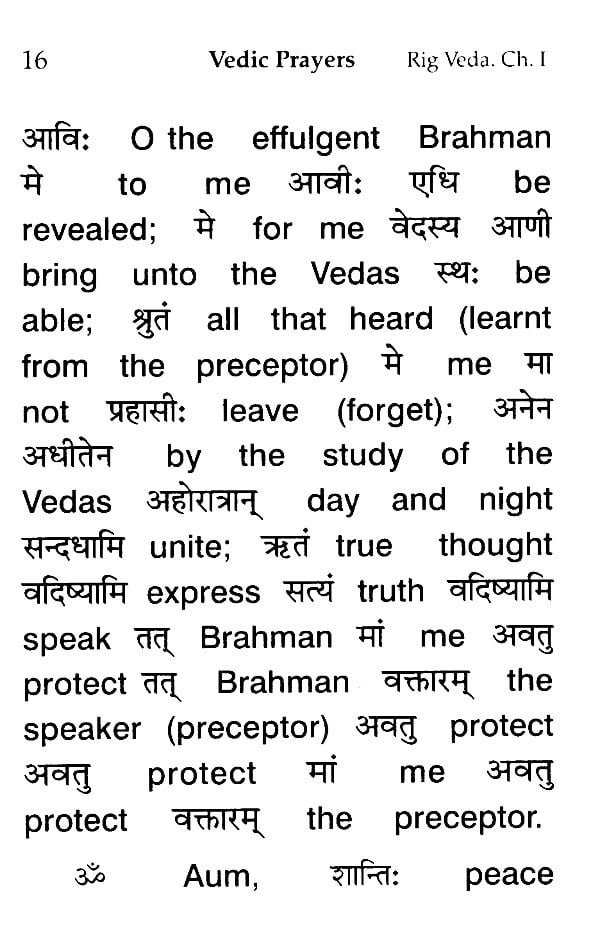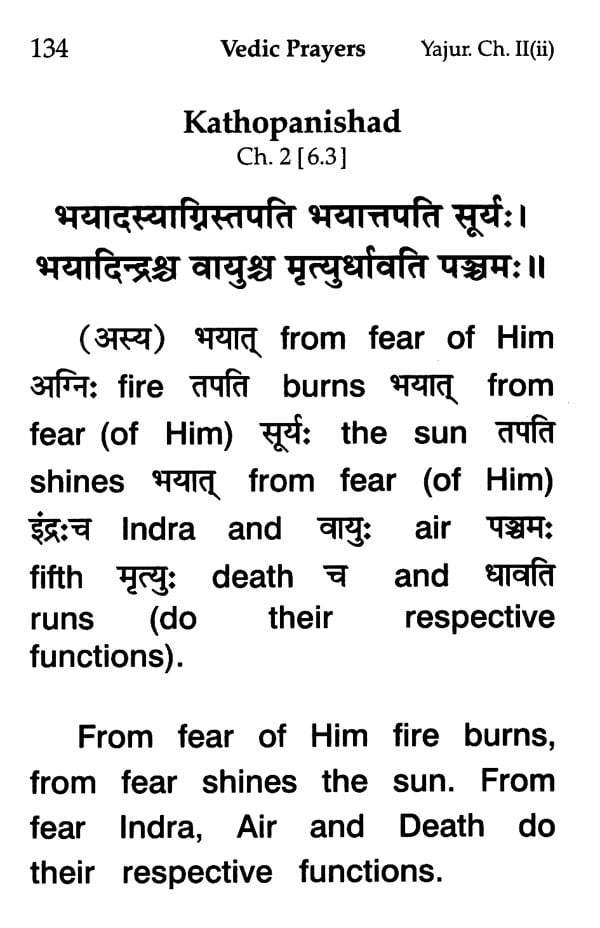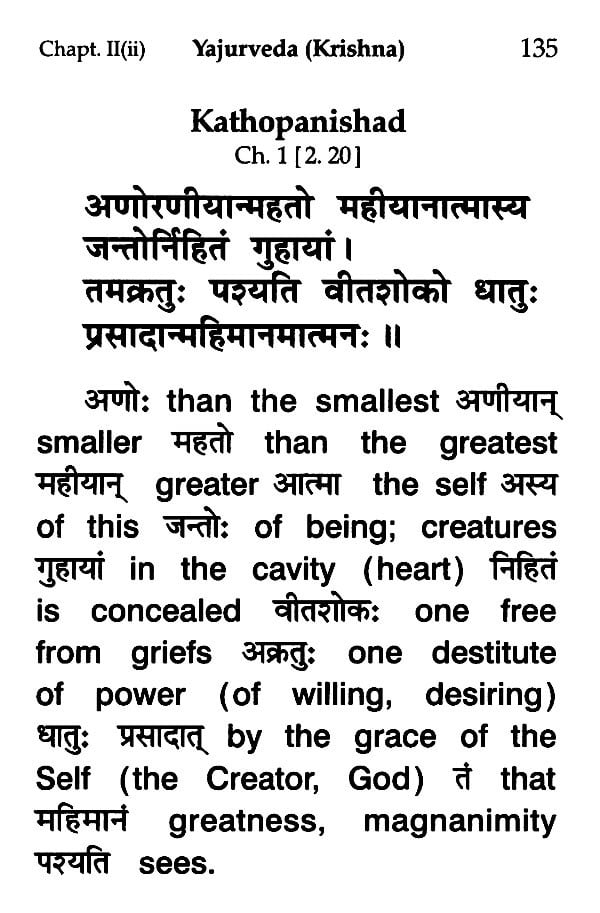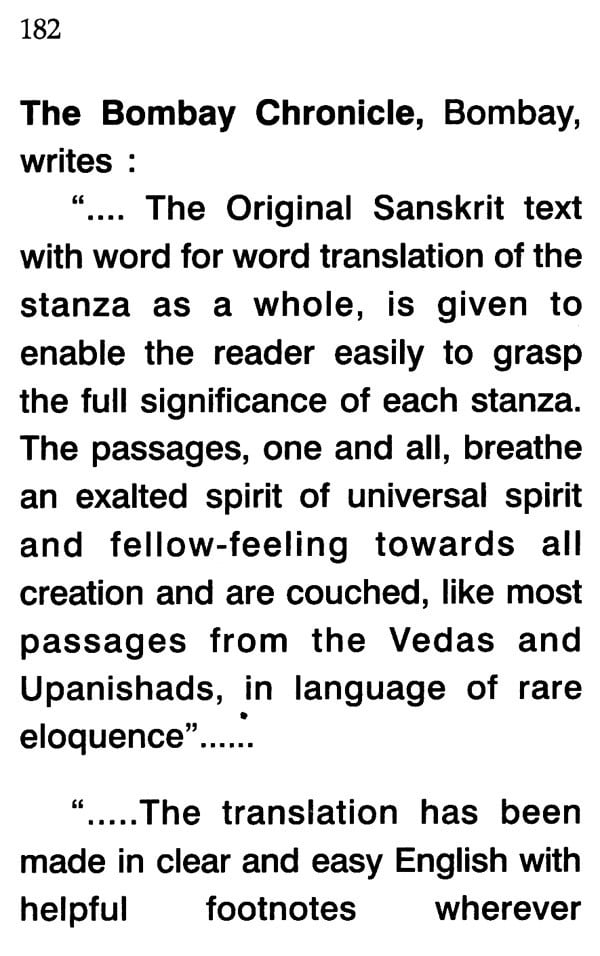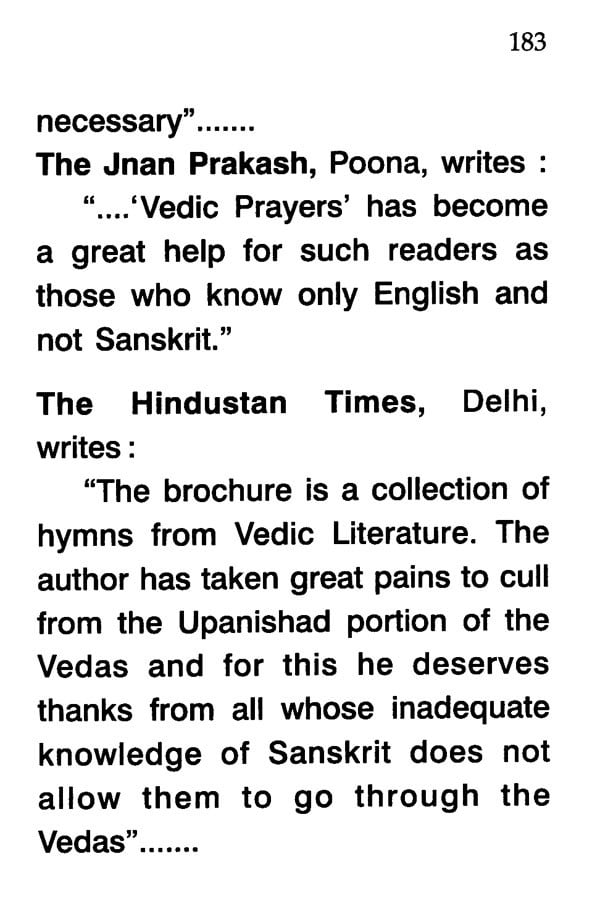
Vedic Prayers
Book Specification
| Item Code: | AZB439 |
| Publisher: | Ramakrishna Math, Mumbai |
| Language: | Sanskrit Text With English Translation |
| Edition: | 2005 |
| Pages: | 214 |
| Cover: | PAPERBACK |
| Other Details | 5.20 x 3.15 inches |
| Weight | 120 gm |
Book Description
I have attempted to make the translation as literal as possible without sacrificing literary grace. The word-for-word English renderings of the Sanskrit will, it is hoped, help readers to understand the spirit of the mantras more easily. Explanatory notes have also been appended to difficult philosophical words. For, prayers said with full knowledge of their significance are of immense benefit.
I hope that this book, though small, will be accorded the welcome and appreciation that the original verses deserve.
I cannot close the preface without offering my heart-felt thanks to some of my best friends who have given me occasional help to expedite this publication.
We have great pleasure to publish the fifth edition of 'Vedic Prayers' by Swami Sambuddhananda.
The first edition dedicated to the Holy Mother Sri Sarada Devi was published in the year 1938 and the fourth edition in the year 1971. This small book of Vedic prayers was very popular.
After gap of 34 years, the fifth edition of 'Vedic Prayers' is now published on the occasion of concluding function of the 150th Birth Anniversary of Holy Mother Sri Sarada Devi.
This edition contains Vedic Mantras selected from the four Vedas. These Mantras in Devanagari script (Sanskrit) with word-for-word translation, English rendering and helpful footnotes, are very beneficial for reflection and contemplation.
Vedic prayers purify body and mind. With divine inspiration, the aspirant will be blessed with spiritual illumination, attaining real peace and happiness.
Hope the fifth edition of 'Vedic Prayers' will have a great influence in spiritual life and it will be the source of inspiration for spiritual awakening.
The oldest of all scriptures in the world, as held by the consensus of erudite opinion of both the West and the East are the Vedas. “The Vedas”, says the great Swami Vivekananda, “do not owe their authority to anybody, they are themselves authority, being the eternal knowledge of God. They were never written, never created, they have existed throughout time; just as creation is infinite and eternal, without beginning and without end, so is knowledge of God, without beginning and without end. And this knowledge is what is meant by the Vedas (Sanskrit vid to know)”.
The Vedas are four in number viz. The Rig Veda, Yajur Veda, Sama Veda and Atharva Veda. Each of these Vedas has three main divisions, namely, the Samhitas, the Brahmanas and the Aranyakas. The Samhitas comprise collections of hymns, sacrificial formulas and litanies. The Brahmanas consist of prose texts of theological matter, descriptions of sacrificial rites and the modes of their performance. The Aranyakas contain teachings meant for those who take to the life of a recluse. The Upanishads which constitute the philosophical portion of the Vedas, mostly consist of different chapters of the Aranyakas. In fact, the Vedas fall into two distinct divisions which have been named the Karmakanda and the Jnanakanda, the former deals with the performance of rituals and the latter with philosophical or spiritual knowledge. The Upanishads, otherwise called the Vedanta (“the end of the Vedas”) as available today, are two hundred and twentythree in number. These are not only the store-house of the oldest Indian philosophy, the accumulated wisdom of saints and sages, but also contain a graphic account of various forms of meditation (upasana) on God, Soul and Universe, (Vide author's 'Hinduism of Tomorrow' published in the Religions of the World, Vol. II).
**Contents and Sample Pages**
